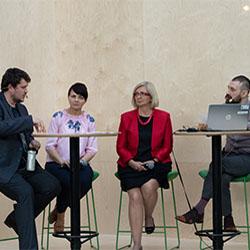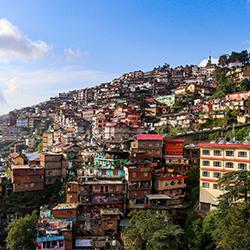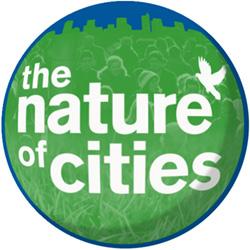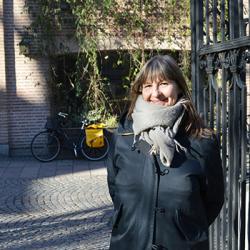Sustainability – differently
All societies contain many so called ‘wicked problems’, problems that have many dimensions, are hard to pin-down and consequently are extremely challenging to solve. There are no winning formulae to the problem. This requires a different approach if we want to strive towards sustainability where the wicked problems are no more.

Sustainability – differently is the overarching theme of the 40th Anniversary Special Edition of the Bulletin of Geography: Socio-economic series, and is edited by Mirek Dymitrow, Mistra Urban Futures and Chalmers University of Technology and Keith Halfacree, University of Swansea, UK.
Urban Rural Gothenburg
This journal issue recognises the complexity of wicked problems as it brings together a number of brave takes on far-advanced problems that argue against oversimplifications. The case of Urban Rural Gothenburg – a project within Mistra Urban Futures set the scene for the eleven different perspectives featured in the issue.
We live in an ‘age of migration’ which is visibly transforming the world. While many of the global migrants are reallocating for work, family or change of lifestyle, many have little choice as they flee their countries, and this has become a defining feature of globalisation. The Urban Rural Gothenburg project adopts a new, much-debated take on the problem.
Rather than yet again rehearse the familiar socially-oriented ‘immigrant policies’ of unrestrained openness, multiculturalism and dormant potential, the project eschews this rhetoric altogether and instead aims to achieve socio-economic sustainability through improved conditions for green innovation and green business development. It also wants to link the physical and conceptual boundaries between the city and the countryside, given that the North-East of Gothenburg forms a transitional zone between the two spheres. As such, the project attempts to think outside the box and instead capture several of the problems facing our society today, including poverty, migration, food shortage, ethnic tensions, climate change and informality. All wicked problems.
Wicked problems
A wicked problem is a problem that is difficult or impossible to solve. What epitomises a wicked problem is that it has no clear definition, no end-state to arrive at, no template to follow, often has more than one explanation, scientific strategies are not enough, solutions are often too narrow and any attempt to solve them requires huge levels of commitment.
Sustainability is in itself wicked: it is an everchanging target and the vision may never be reached. However we must strive to ‘solve’ the problem as the alternative is not an option. Obtaining sustainability involves, thinking differently, even if such thinking must also cauterise dissent and buttress diverging ideological points in order not to dismiss new ways towards common goals. Given the interconnected nature of wicked problems, stirring up the hornet’s nest from time to time may become a requirement in order not to elevate sustainability to the status of some special currency or empty rhetoric.
Eleven perspectives
The aim of this special issue is to address some of sustainability’s most crucial tenets through a number of innovative perspectives, which may have been pushed into the background amidst an exceptionally rich literature on the subject. Examples both from the Global South and North are captured in the eleven papers featured. The severe problems of pollution in Skopje, Macedonia, representative urban polices, urban food strategies and Alternative Food Networks, rural-urban linkages, public transport and the importance of trust in urban planning are some of the topics explored in-depth. The principal point of this collective endeavour is to dare thinking differently, and not to elevate ‘sustainability’ to the status of some unexamined special currency or an empty rhetorical ‘tick-box’.
Find the 40th Anniversary Special Edition of the Bulletin of Geography: Socio-economic series on
De Gruyter’s or via Sciendo. The publication is open access and thus free to download.
Read more
Urban Rural Gothenburg
Research forum Urban Rural Gothenburg
Questions?
Mirek Dymitrow, Researcher, Mistra Urban Futures, mirek.dymitrow@chalmers.se
De Gruyter is an internationally reputed German publishing house specializing in academic literature. The company was founded in 1749 and has its roots in the Königliche Realschule in Berlin, which had been granted the royal privilege to print books by King Frederick II of Prussia. Today, De Gruyter publishes over 1,300 new titles each year in the humanities, social sciences, STM and law. De Gruyter closely cooperates with the majority of A&I services, citation indexes, and discovery services such as Scopus, Thomson Scientific, PubMed/Medline, Google Scholar and many others. De Gruyter maintains offices in Berlin, Basel, Boston, Munich, Beijing, Warsaw, and Vienna.







